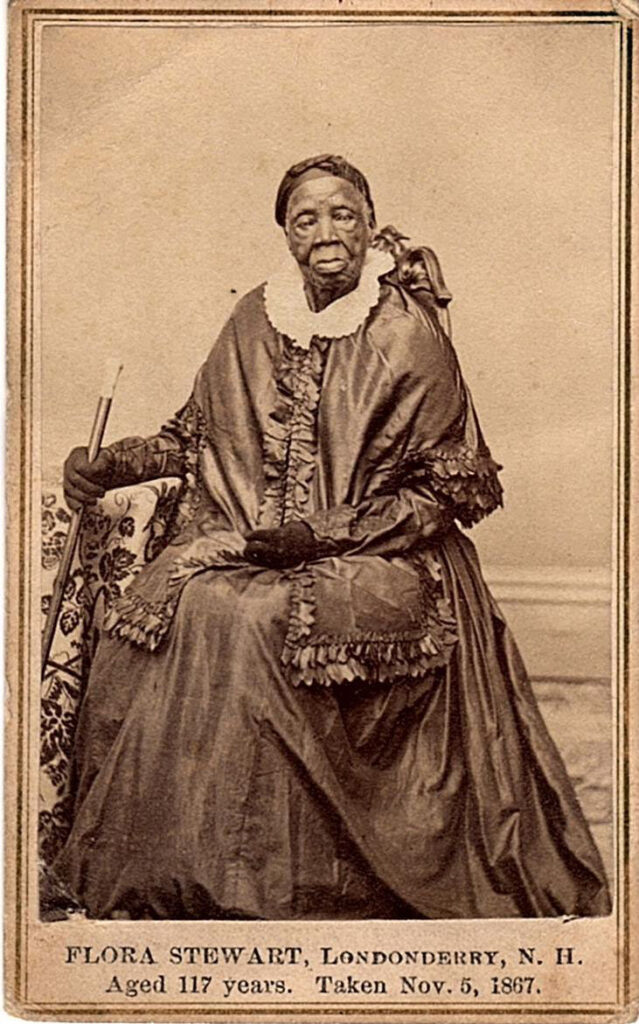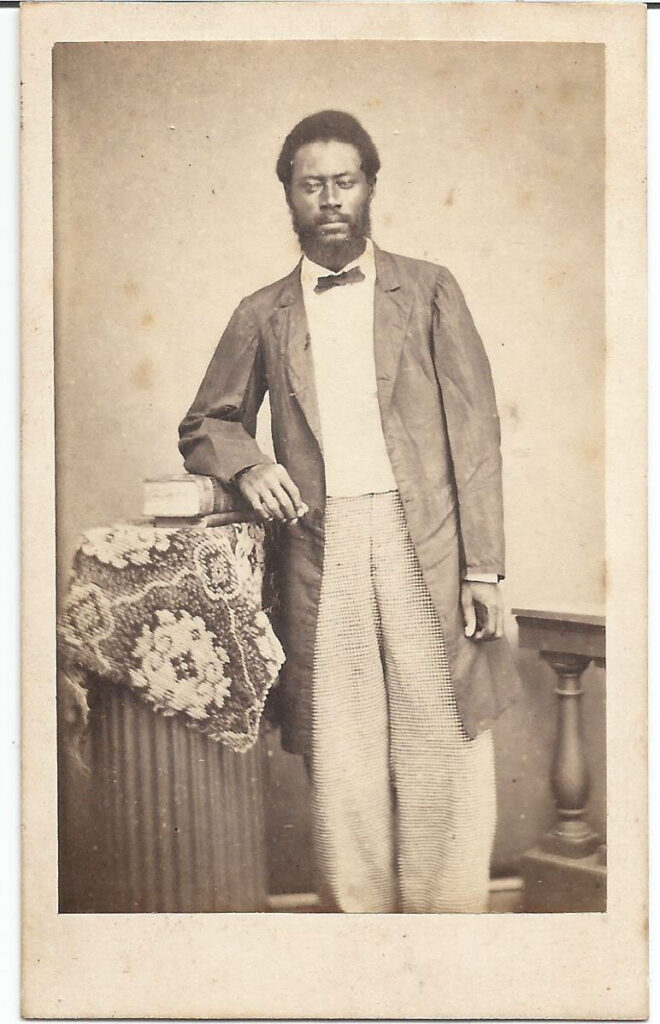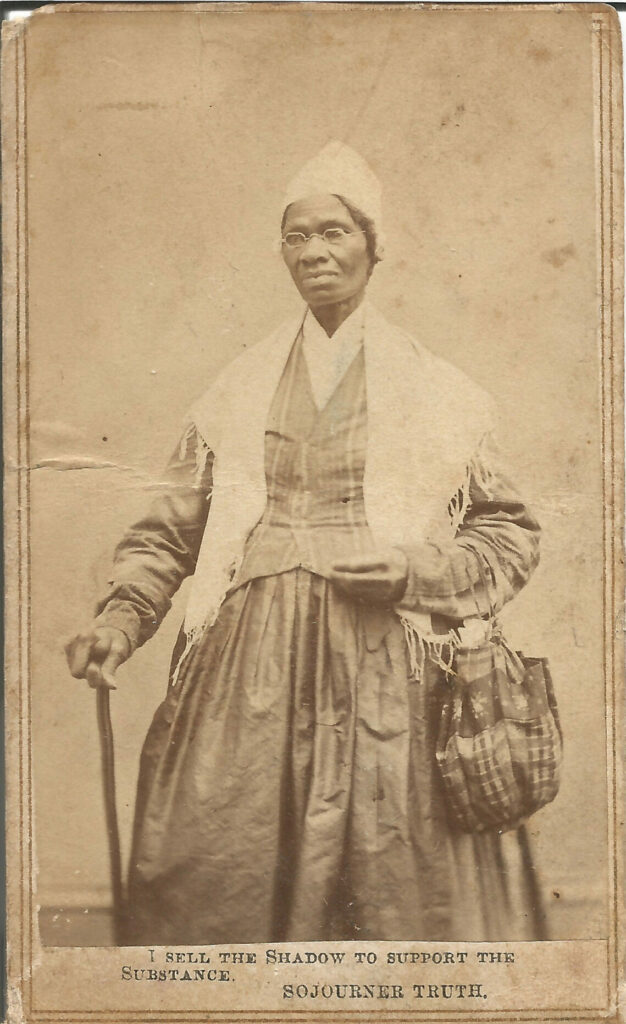Section #9 - Growing opposition to slavery triggers domestic violence and a schism in America’s churches
Chapter 94: Free Blacks Are Making Progress
1840
The Status Of Free Blacks In 1840

In 1840 roughly 13% of all African-Americans in the U.S. are living as “freed men and women” – with slightly over half residing in “slave states.” Some are manumitted by their owners, some buy their way out, others are run-aways. A relative few are born free, as determined by their mother, whose “status” they inherit.
Next Generation Free Black Leaders In 1840
| Name | Age | Born |
| Thomas Dalton | 46 years | Free |
| Reverend Samuel Cornish | 45 | Free |
| Reverend Theodore Wright | 43 | Free |
| Isabella Baumfree/Sojourner Truth | 43 | Slave |
| Charles Lennox Raymond | 30 | Free |
| Robert Purvis | 30 | Free |
| David Ruggles | 30 | Free |
| Martin Delaney | 28 | Free |
| Henry Highland Garnet | 25 | Slave |
| William Cooper Nell | 24 | Free |
| Frederick Douglass | 22 | Slave |
| Harriet Tubman | 18 | Slave |
Regardless of their path to freedom, the latitude they enjoy is sharply constrained. This is especially the case in the South, where whites fear that the presence of freedmen will spark uprisings among those left in slavery. In the North, they are typically living in cities, within segregated neighborhoods, and subject to written or informal “black codes” which leave them uneducated, poorly housed, unemployed, beyond the protection of basic legal rights, regarded as inferior, often feared and unwelcomed.
Still they persevere, rallying around their own institutions – black churches, freemason halls, barber shops, small storefronts – and around community leaders who have mastered the ways of white society and are determined to advance their cause.
1840
A Next Generation Of Black Leaders Fight For Recognition

By 1840, many of the early leaders have passed – men like Prince Hall, Paul Cuffee, clergymen Thomas Paul, Richard Allen and Absalom Jones. The youthful abolitionist David Walker dies suddenly in 1831. The successful businessman and crusader, James Forten, is seventy-four and only two years from death.
But a next generation of successors is already beginning to make their marks.
Thomas Dalton works his way up from bootblack and tailoring jobs in Boston to ownership of a successful clothing store. In 1834 he marries his wife, Lucy Lew, who is educated in an integrated school, and together they embark on a series of efforts to strengthen their community. Dalton becomes a trustee in the AMEZ church, Grand Master of the Prince Hall Lodge, president of the Massachusetts General Colored Association, and co-founder with Lloyd Garrison, of the New England Anti-Slavery Society.
Reverend Samuel Cornish graduates from the Free African School in Philadelphia, is ordained a minister in 1822, opens the first black Presbyterian Church in Manhattan, and then co-founds the first African-American newspaper in America, Freedom’s Journal. The initial editorial declares its mission:
Too long have others spoken for us. Too long have the public been deceived…We wish to plead our own cause.
Reverend Theodore Wright, the first black graduate of the Princeton Theological Seminary in 1829, follows Cornish in the Manhattan church pulpit and becomes a founding member in 1833 of the American Anti-Slavery Society, which unites white and black abolitionists and numbers some 250,000 recruits by 1838. His home becomes a “station” on the underground railroad, and he eventually supports radical action by blacks to end slavery. Charles Lenox Remond benefits from his parent’s successful catering and barbering businesses and becomes a traveling lecturer and agent for Lloyd Garrison’s Liberator newspaper in 1832. He becomes a powerful speaker, addressing the 1840 World Anti-Slavery Convention in London, and later delivering the first speech by a black man to the Massachusetts’s state legislature. Remond’s younger sister, Sarah, will follow in his footsteps as an abolitionist, before moving to Italy and becoming a medical doctor.
Robert Purvis is born in Charleston to a white father, a wealthy cotton merchant who had emigrated from England, and a freed slave mother. After graduating from Amherst College, his father dies, and he is left with a sizable fortune he uses on behalf of supporting African Americans. He sets up the Library Company of Colored People in Philadelphia, helps Garrison found the American Anti-Slavery Society in 1833, drafts a constitutional amendment on voting rights, and heads Vigilance Committees to prevent black kidnappings.
David Ruggles attends church school in Connecticut before moving at sixteen to New York City, where he works as a seaman and operates a grocery store before becoming an agent for the Liberator. He then opens a bookstore and edits The Mirror of Liberty journal. Like Purvis he is intently concerned about protecting the freedom of those who have escaped slavery, including Frederick Douglass. He is briefly imprisoned in 1838 for assisting a slave, Thomas Hughes, who escapes after being brought to “free NY” by his Virginia master, John Darg. For his visible work on behalf of run-aways, he is assaulted, and his bookstore is burned down.
While his father is a slave, Martin Delaney is born free because his mother has previously been manumitted. The youth learns to read from a primer given to him by a peddler, then becomes interested in medicine. After being accepted at Harvard Medical School but denied enrollment, he move to Pittsburg where he completes his apprenticeship. He attends the 1835 National Negro Convention, joins the anti-slavery movement, and records remarkable achievements over the next fifty years: helping Fred Douglass in launch his North Star newspaper, authoring articles and novels on the horrors of slavery, and eventually receiving the rank of Major in the union army after meeting with Abraham Lincoln and leading the effort to recruit black troops.
Born a slave in Maryland, Henry Highland Garnett escapes at age nine, and gains a high school education in New York city, before graduating from the Oneida Institute in 1839. From there he becomes a church pastor and embarks on a forty-year crusade to end slavery, including a call at the National Negro Convention of 1843 for blacks to pursue an armed rebellion to win their own freedom.
William Cooper Nell’s father is a freedman in Boston who helps found the Massachusetts General Colored Association in the 1820’s. As a young man, he studies law but refuses to swear allegiance to the Constitution, which he calls a racist document, and is never admitted to the bar. By 1840 he is a member of Lloyd Garrison’s inner circle of Boston abolitionists, and works for the rest of his remarkable life on ending slavery, aiding run-aways, and integrating schools and organizations (including those which are blacks-only). He joins Fred Douglass on the North Star paper, until it begins to criticize Garrison.
In 1840 two women who will leave their mark on the abolitionist movement remain in the wings. One is forty-three year old Isabella Baumfree, who has run away from enslavement in New York, but is still three years away from “hearing the spirit,” rechristening herself Sojourner Truth, and beginning a series of speaking tours on behalf of abolition. The other is Harriet Tubman, later “general” of the Underground Railroad, but only eighteen at the time, and still suffering great physical abuse as a slave in Maryland.

Then, of course, there is Frederick Douglass, who will go on to lead the black citizenship movement over the next three decades. In 1840, he is twenty-two years old and living in Bedford, Massachusetts with his wife, after escaping from his Maryland master. He has already become a licensed preacher and avid reader of the Liberator, but is yet to achieve the prominence that will follow his landmark August 1841 address to the Massachusetts Anti-Slavery Society on Nantucket Island.
Next Generation Free Black Leaders In 1840
| Name | Age | Born |
| Thomas Dalton | 46 years | Free |
| Reverend Samuel Cornish | 45 | Free |
| Reverend Theodore Wright | 43 | Free |
| Isabella Baumfree/Sojourner Truth | 43 | Slave |
| Charles Lennox Raymond | 30 | Free |
| Robert Purvis | 30 | Free |
| David Ruggles | 30 | Free |
| Martin Delaney | 28 | Free |
| Henry Highland Garnet | 25 | Slave |
| William Cooper Nell | 24 | Free |
| Frederick Douglass | 22 | Slave |
| Harriet Tubman | 18 | Slave |